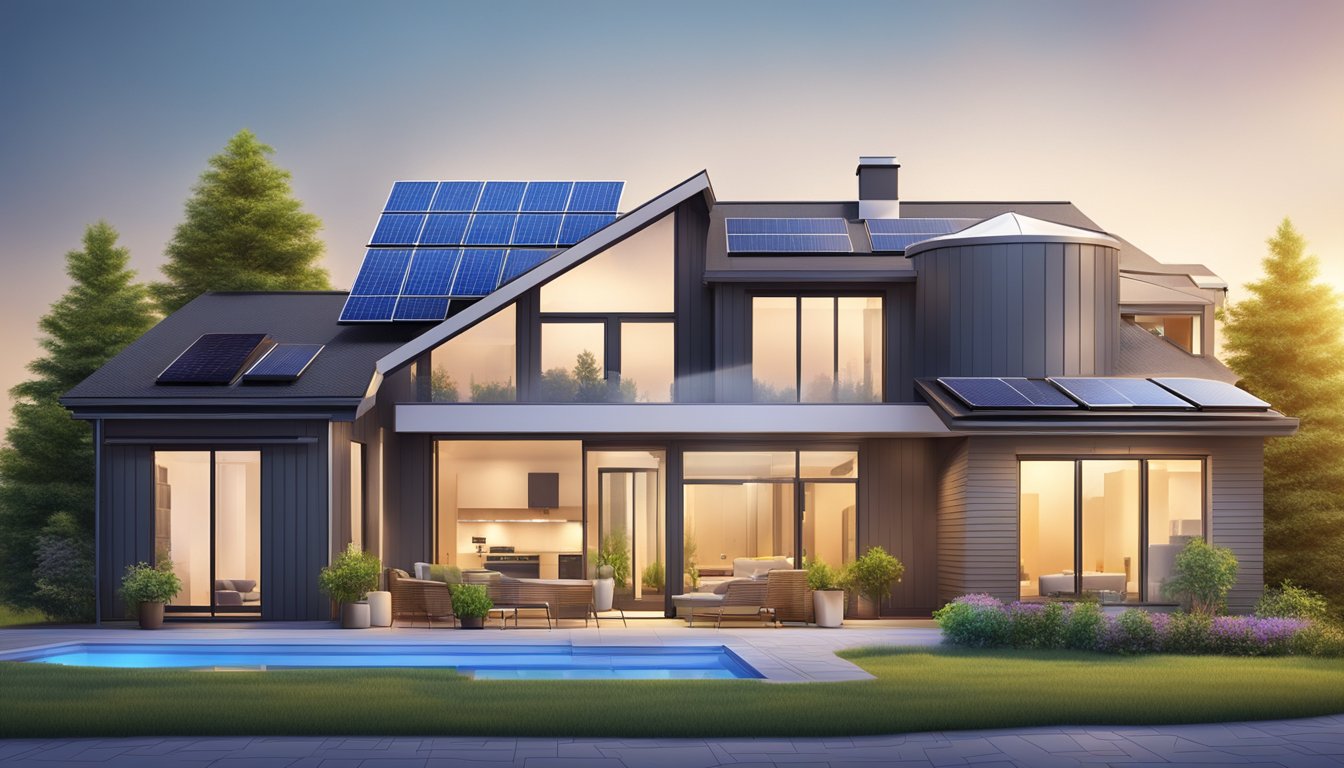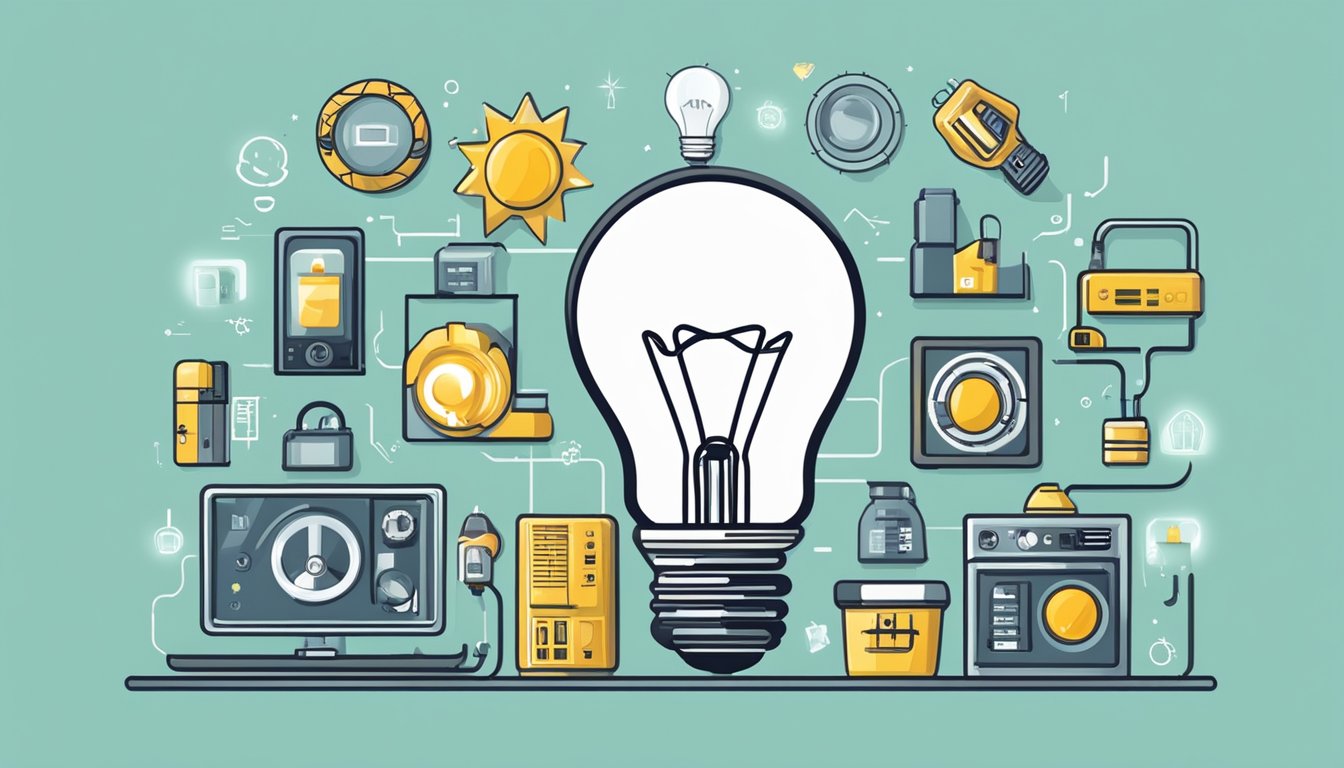If you're looking to save money on your electricity bill, there are many ways to do so without sacrificing comfort or convenience. Singapore households can benefit from a range of energy-efficient measures, behavioural changes, and government programmes that promote climate-friendly living.

One of the most effective ways to save electricity is by maximising your home's energy efficiency. This means using appliances and devices that consume less power, such as LED light bulbs, energy-efficient air conditioners, and smart home systems that can be controlled remotely. You can also insulate your home to reduce heat loss and keep your living spaces cooler without relying on air conditioning.
Making behavioural changes can also help you conserve electricity and reduce your bill. Simple habits like turning off lights and appliances when not in use, using natural light instead of artificial light, and adjusting your thermostat can all add up to significant savings over time. Additionally, participating in the National Environment Agency's Climate Friendly Households Programme can provide you with tips, tools, and incentives to reduce your energy consumption and carbon footprint.
Key Takeaways
- Maximize your home's energy efficiency with energy-efficient appliances and devices, insulation, and smart home systems.
- Make behavioural changes to conserve electricity, such as turning off lights and appliances when not in use, using natural light, and adjusting your thermostat.
- Participate in the National Environment Agency's Climate Friendly Households Programme to get tips, tools, and incentives to reduce your energy consumption and carbon footprint.
Maximising Home Energy Efficiency

Saving electricity is not only good for the environment but also for your wallet. Adopting energy-efficient appliances, smart usage of air-conditioning, and embracing natural cooling and lighting can help you save money on your electricity bills.
Adopting Energy-Efficient Appliances
When purchasing new appliances, consider buying energy-efficient models. Look for appliances with the Energy Label, which is a mandatory energy labelling scheme administered by the Energy Market Authority (EMA). The label shows the energy efficiency rating of the appliance, with more stars indicating higher efficiency. Energy-efficient refrigerators, for example, can save you up to 30% on your electricity bills compared to older models.
Smart Usage of Air-Conditioning
Air-conditioners are one of the biggest consumers of electricity in Singapore homes. To save electricity, set your air-conditioner to a temperature between 25°C and 27°C, which is comfortable for most people. You can also reduce the use of air-conditioning by embracing natural cooling methods, such as opening windows and using fans.
Embracing Natural Cooling and Lighting
Using natural lighting and cooling can help you save electricity. Use LED bulbs instead of incandescent bulbs, which consume more energy. LED bulbs are energy-efficient and can last up to 25 times longer than traditional bulbs. Additionally, embrace natural cooling methods such as opening windows and using fans to reduce your electricity consumption.
By adopting these energy-saving tips, you can reduce your electricity consumption and save money on your electricity bills. Visit Megafurniture.sg, a leading Singapore ecommerce furniture store, for energy-efficient appliances that can help you maximise your home's energy efficiency.
Behavioural Changes to Conserve Electricity

Making simple changes to your daily routine can make a significant difference in reducing your electricity bill. Here are some effective ways to manage your daily electricity use:
Effective Management of Daily Electricity Use
-
Switch off appliances when not in use: Standby power can account for up to 10% of your electricity bill. Switch off appliances such as your computer, television, and washing machine when not in use to save on electricity.
-
Use fans instead of air-conditioners: Fans consume less electricity than air-conditioners. By using fans instead of air-conditioners, you can save an average of $441 a year.
-
Use curtains to regulate temperature: Curtains can help regulate the temperature of your home. By opening your curtains during the day and closing them at night, you can reduce the need for air-conditioning and save on electricity.
-
Use water heaters efficiently: Water heaters consume a significant amount of electricity. Use them efficiently by turning them off when not in use and reducing the temperature to save on electricity.
Incentives and Programmes to Reduce Electricity Bills
-
Climate Vouchers: The Singapore government offers climate vouchers to encourage households to conserve energy. These vouchers can be used to purchase energy-efficient appliances and reduce your electricity bill.
-
SP Utilities App: The SP Utilities App allows you to monitor your electricity usage and receive alerts when your usage exceeds a certain limit. This can help you identify areas where you can conserve energy and reduce your electricity bill.
By implementing these simple changes, you can reduce your electricity consumption and save on your electricity bill. Start conserving energy today and make a positive impact on the environment. And if you're looking for quality furniture to complement your energy-saving efforts, check out Megafurniture.sg, a leading Singapore ecommerce furniture store. With a wide range of stylish and affordable furniture options, you're sure to find something that fits your style and budget.
Frequently Asked Questions

What are the top ways to reduce electricity usage in our homes?
If you want to reduce your electricity usage at home, there are a few simple steps you can take. Firstly, switch off appliances when they are not in use. This includes turning off lights, unplugging chargers, and turning off electronics. You can also reduce your energy usage by using energy-efficient light bulbs and appliances. Finally, you can make sure that your home is well-insulated, which will help to keep it cool in the summer and warm in the winter.
Can you share some exciting energy-saving tips for schools?
Schools can also take steps to reduce their energy usage. One way to do this is to encourage students and staff to turn off lights and electronics when they are not in use. Schools can also switch to energy-efficient light bulbs and appliances, and make sure that their buildings are well-insulated. Another way to save energy is to encourage students and staff to use public transport or carpooling to get to school.
What actions has Singapore taken to champion energy conservation?
Singapore has taken a number of steps to champion energy conservation. For example, the government has launched a number of initiatives to encourage people to use energy-efficient appliances and to reduce their energy usage. Singapore has also invested in renewable energy sources, such as solar power, which helps to reduce the country's reliance on fossil fuels.
How can we calculate our electricity expenses accurately?
To calculate your electricity expenses accurately, you will need to know how much you are paying per kilowatt-hour (kWh) of electricity. You can find this information on your electricity bill. To calculate your electricity expenses, simply multiply the number of kWh you have used by the price per kWh.
What household appliances are the biggest energy guzzlers?
Some of the biggest energy guzzlers in the home are air conditioners, refrigerators, and washing machines. These appliances use a lot of energy, so it's important to use them wisely. For example, you can reduce your energy usage by setting your air conditioner to a higher temperature, only running your washing machine when you have a full load, and keeping your refrigerator well-stocked.
How much can we save by optimising our air conditioning use?
By optimising your air conditioning use, you can save a significant amount of money on your electricity bill. For example, you can save up to $441 a year by using a fan instead of an air conditioner for eight hours a day. You can also save money by setting your air conditioner to a higher temperature and only using it when necessary.



